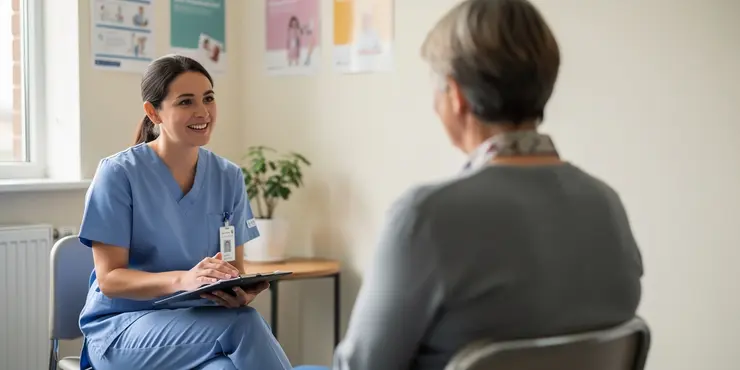
Find Help
More Items From Ergsy search
-
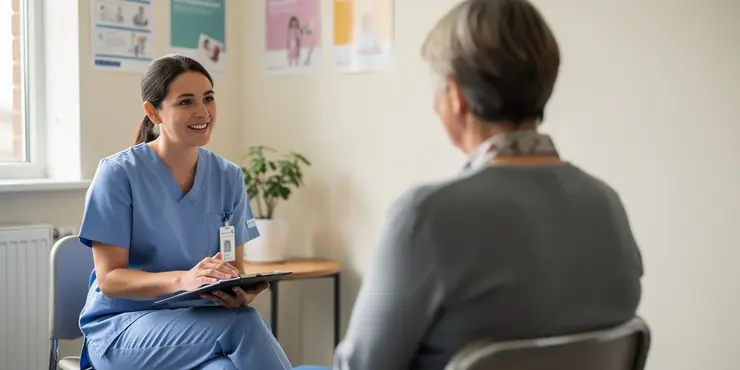
Does screen time affect both sleep onset and sleep maintenance?
Relevance: 100%
-
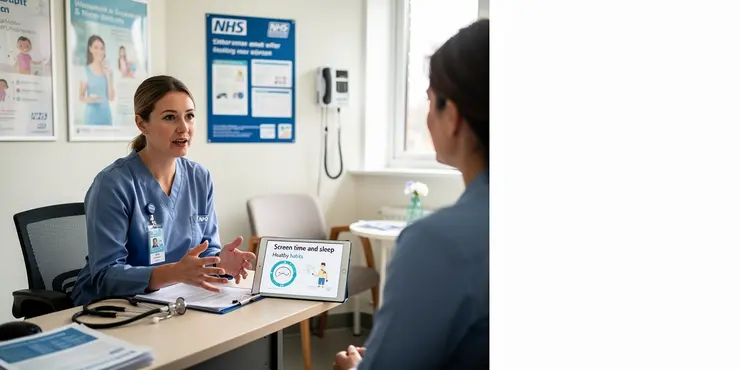
Does screen time impact REM sleep?
Relevance: 61%
-
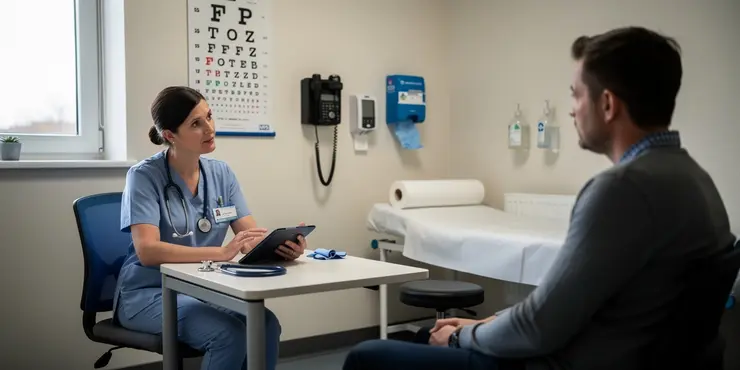
Study Shows Link Between Screen Time and Sleep Quality
Relevance: 59%
-
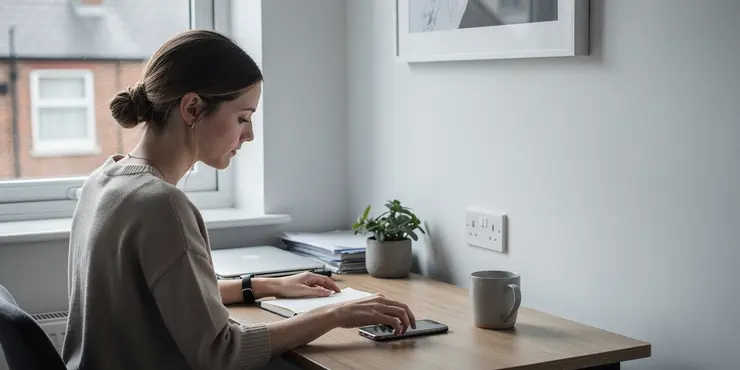
How does screen time affect sleep quality?
Relevance: 58%
-
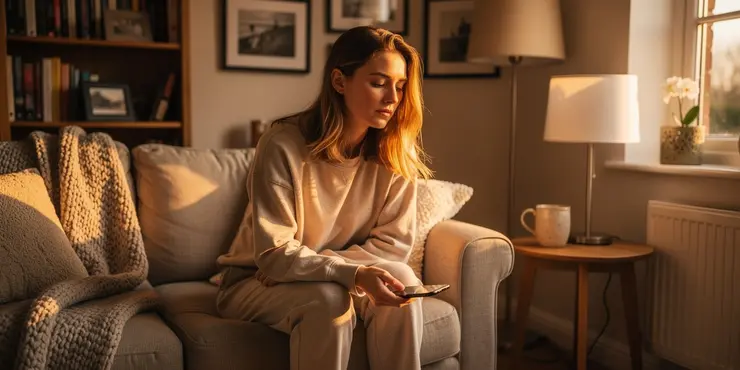
Can reducing screen time improve sleep quality?
Relevance: 57%
-
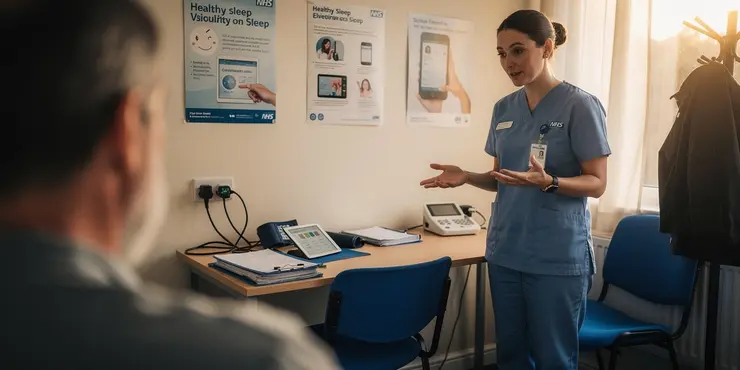
What is the main finding of the study linking screen time to sleep quality?
Relevance: 57%
-
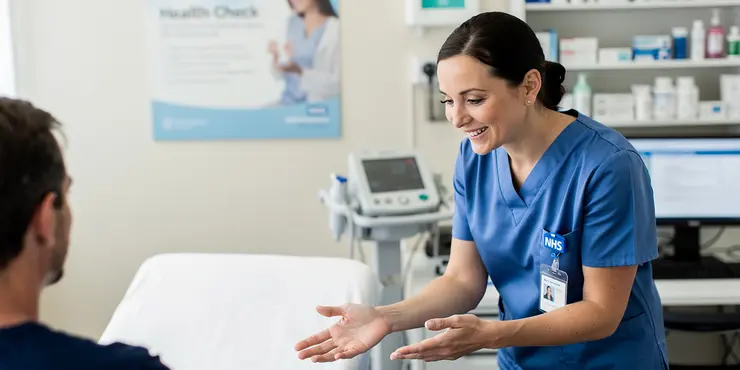
Is there a difference in screen time impact on sleep between weekdays and weekends?
Relevance: 57%
-
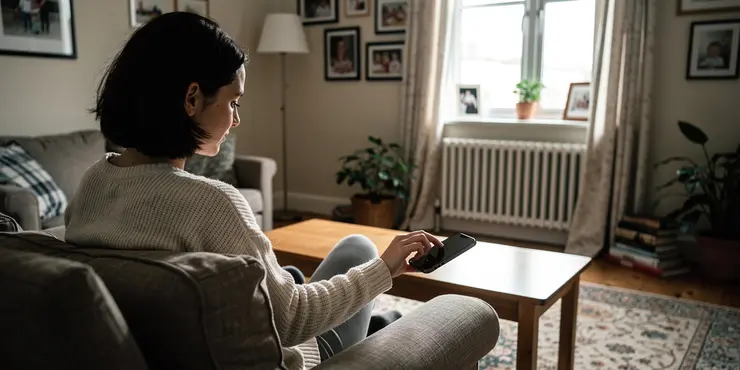
Are there any screen time guidelines recommended for improving sleep?
Relevance: 56%
-
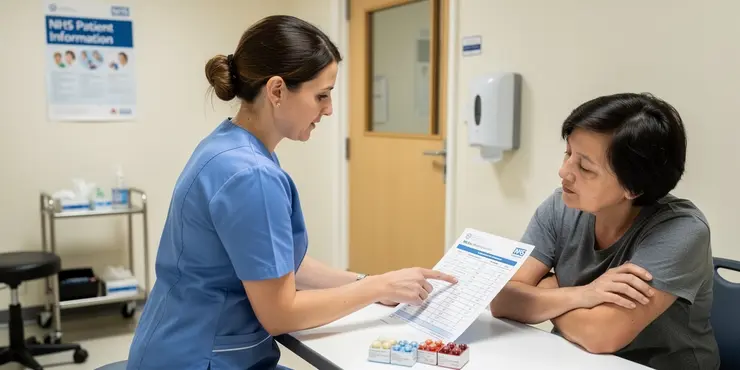
What are some tips for reducing screen time to improve sleep?
Relevance: 55%
-
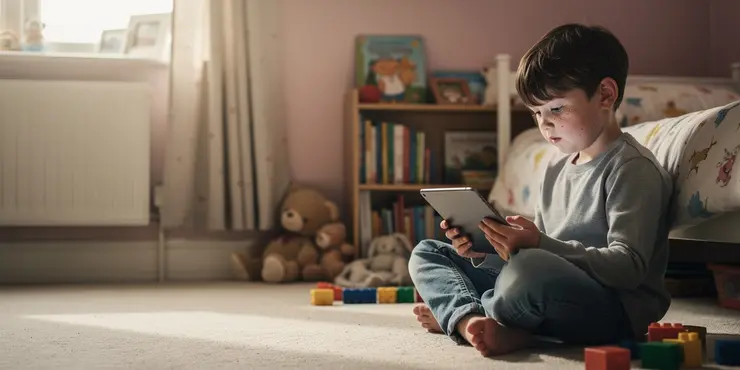
Are children more affected by screen time in relation to sleep than adults?
Relevance: 55%
-
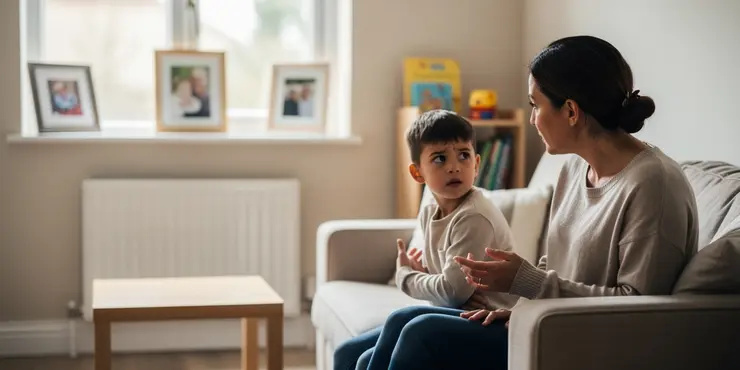
What is the role of parental monitoring in children's screen time and sleep?
Relevance: 53%
-
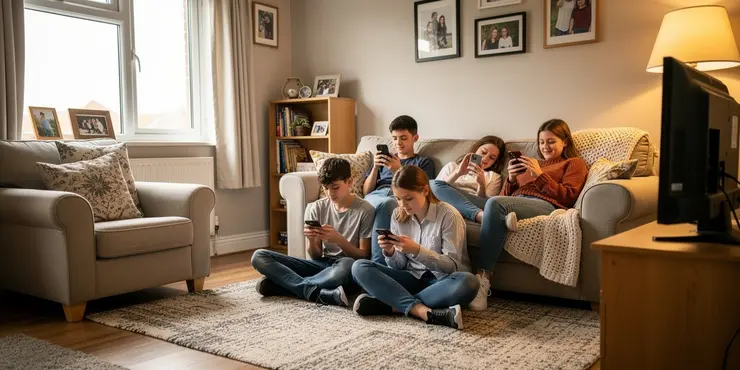
What demographic showed the most significant change in sleep quality due to screen time?
Relevance: 53%
-
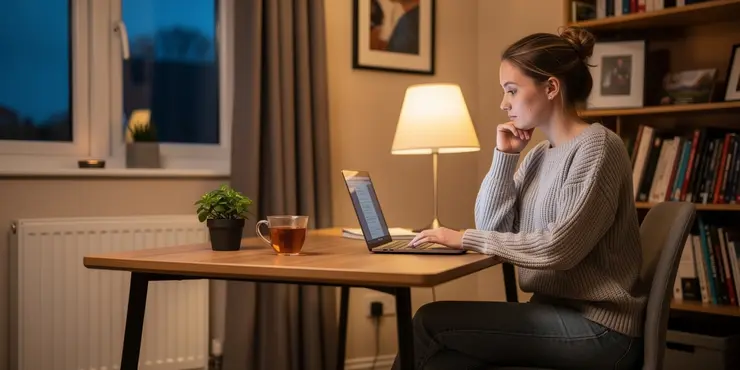
Is blue light from screens a factor in affecting sleep quality?
Relevance: 47%
-
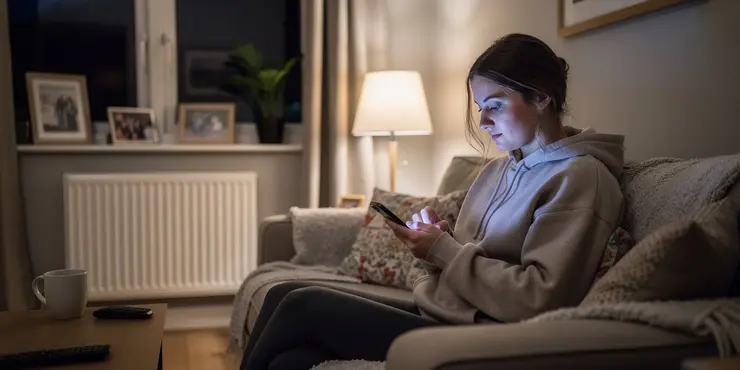
What are some long-term effects of poor sleep quality linked to screen time?
Relevance: 41%
-
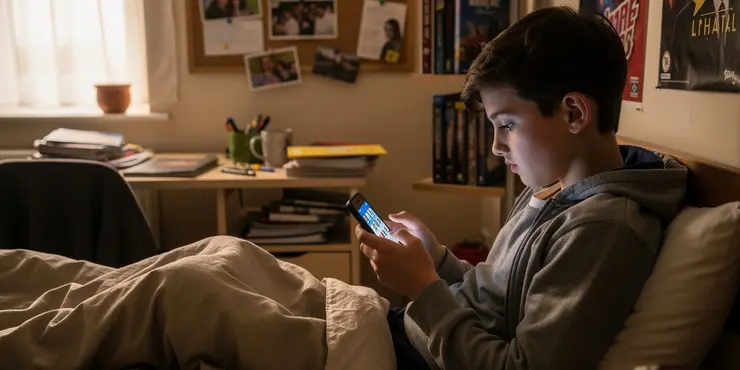
How does screen time before bed specifically affect adolescents?
Relevance: 40%
-
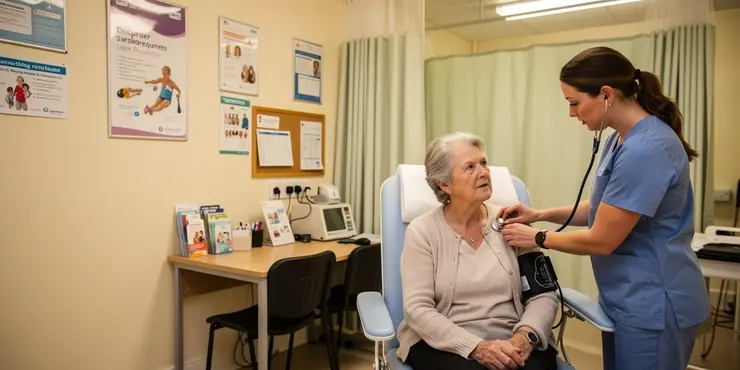
Is it safe to sleep after a concussion?
Relevance: 39%
-
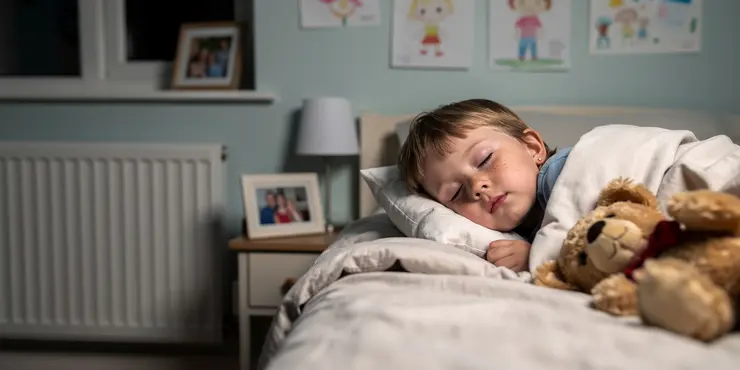
The Importance of Sleep for All Ages
Relevance: 39%
-
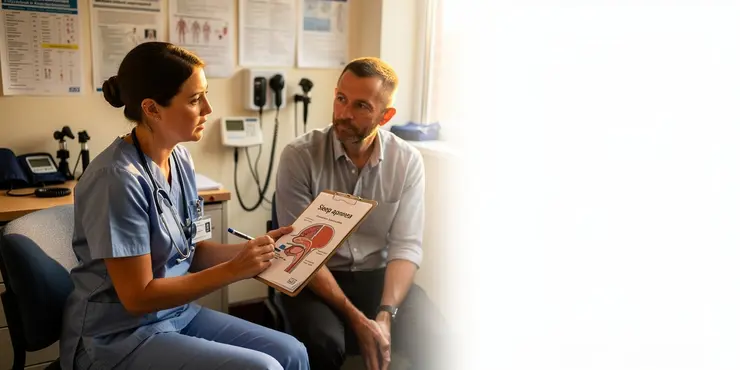
What is sleep apnoea?
Relevance: 39%
-
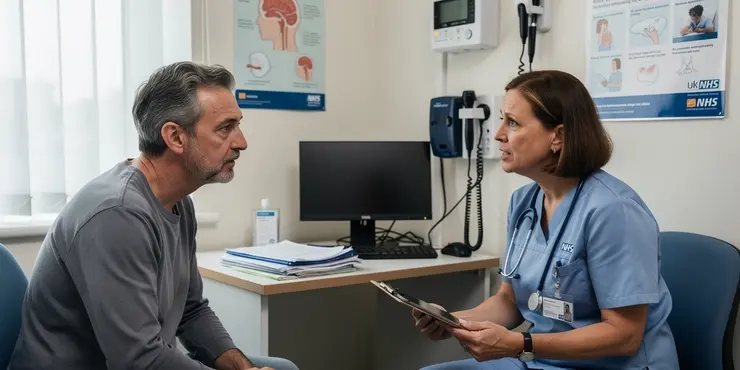
What is sleep apnea?
Relevance: 39%
-
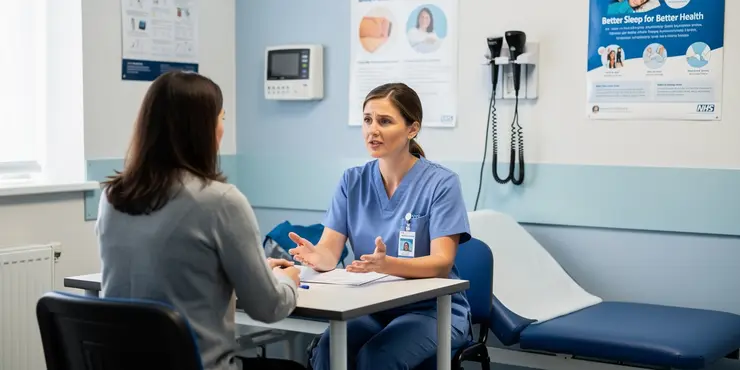
Can alcohol worsen sleep apnea?
Relevance: 38%
-
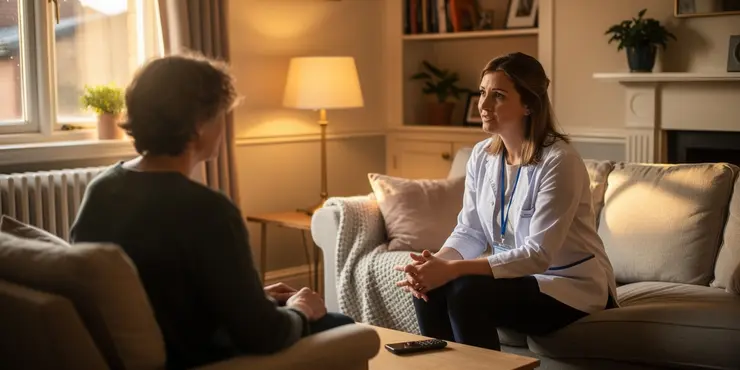
Top Tips to Help You Get a Good Nights Sleep
Relevance: 37%
-
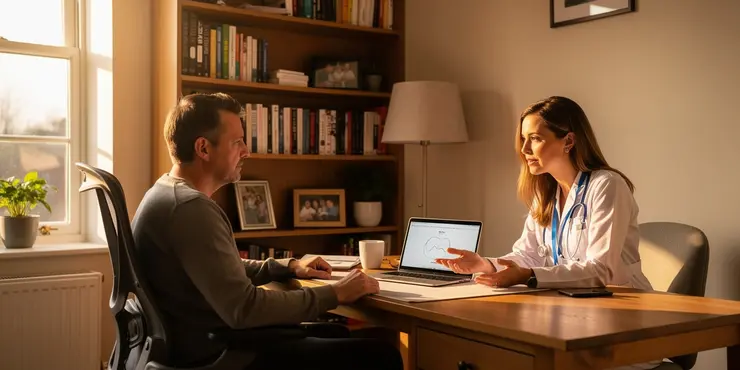
How is sleep apnea diagnosed?
Relevance: 37%
-
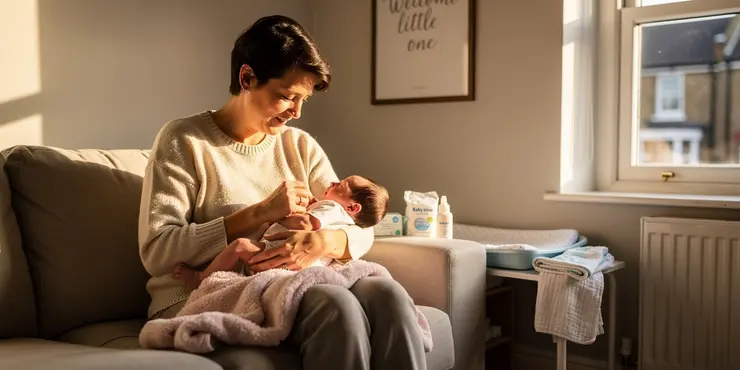
Are baby sleep pillows safe?
Relevance: 37%
-
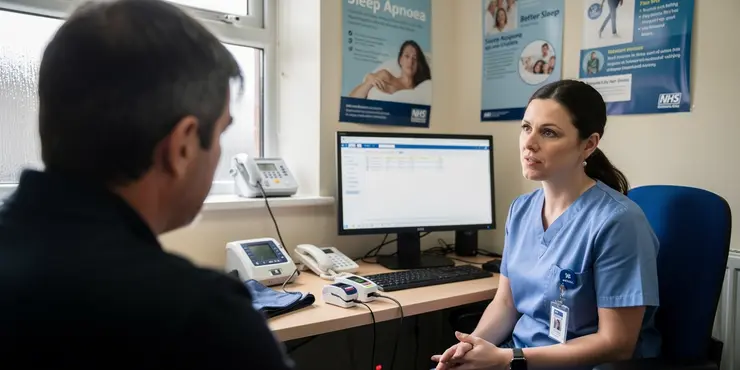
How common is sleep apnea?
Relevance: 37%
-
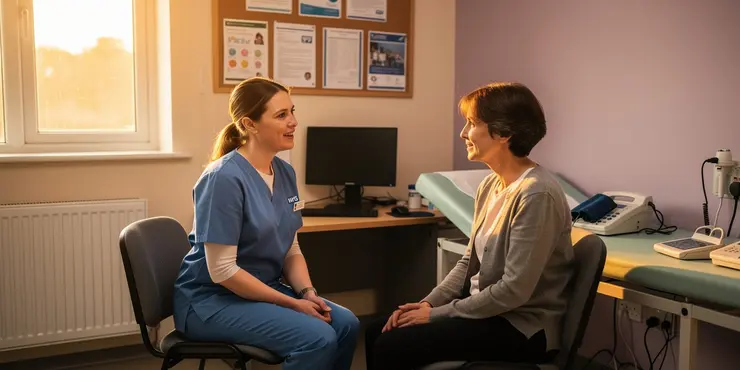
Why is sleep apnea dangerous?
Relevance: 36%
-
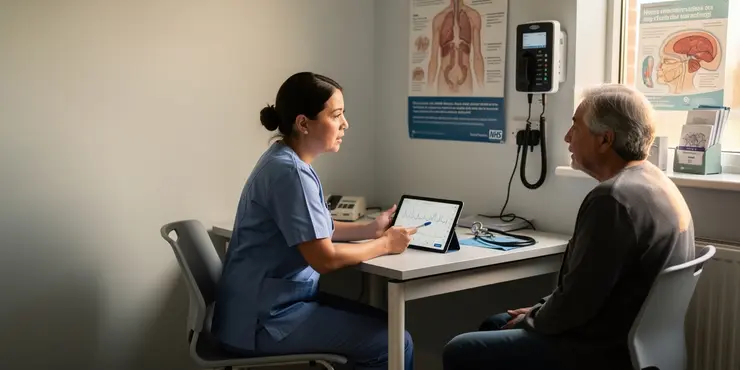
Can sleep apnea be cured?
Relevance: 36%
-
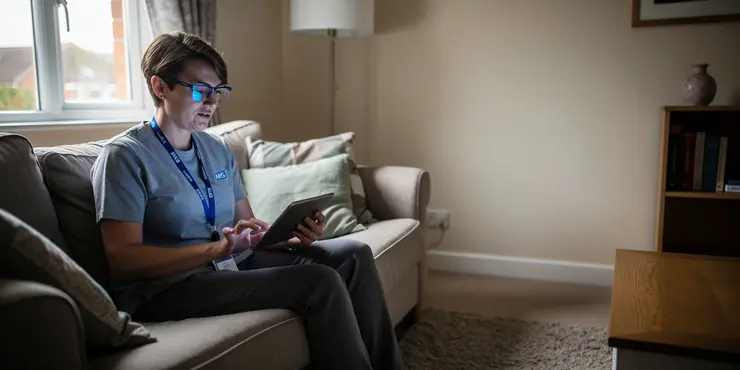
Do mitigation strategies like blue light glasses help improve sleep quality?
Relevance: 36%
-
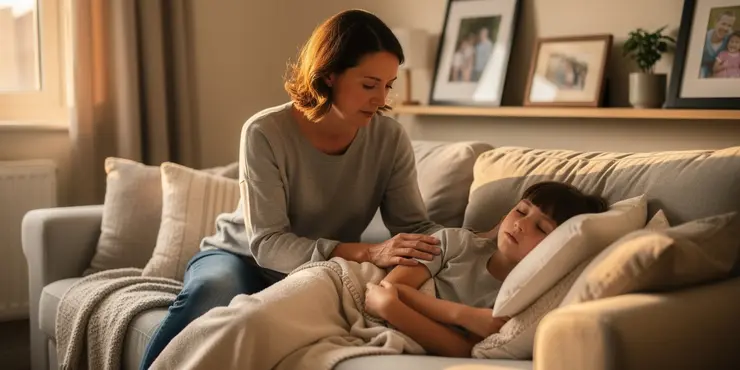
Is it safe to sleep after a concussion?
Relevance: 36%
-
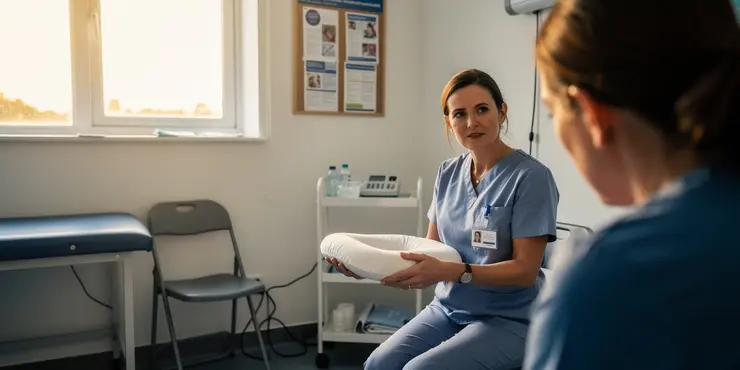
Are there any benefits to using baby sleep pillows?
Relevance: 36%
-
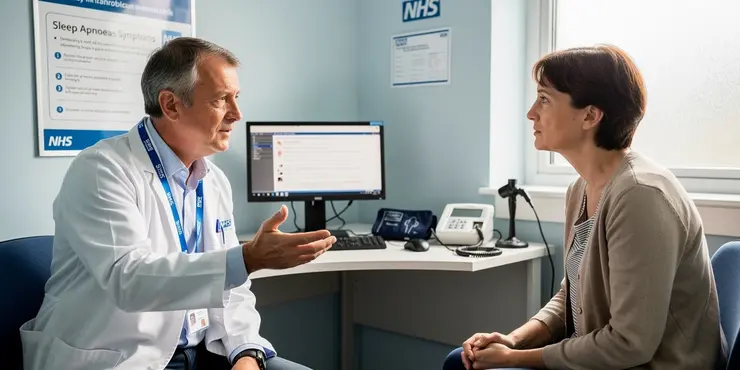
What are common symptoms of sleep apnea?
Relevance: 35%
-
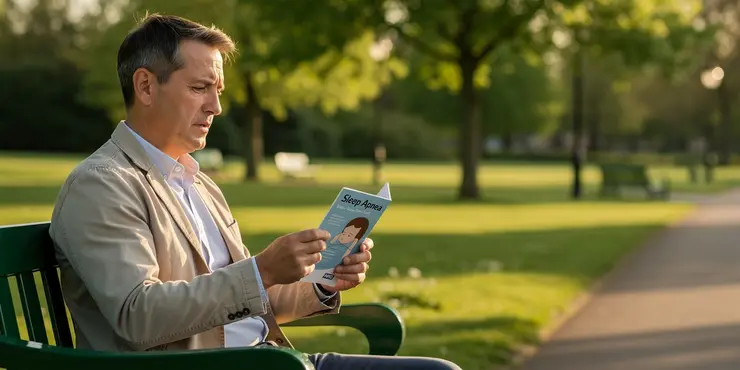
What are risk factors for developing sleep apnea?
Relevance: 35%
-
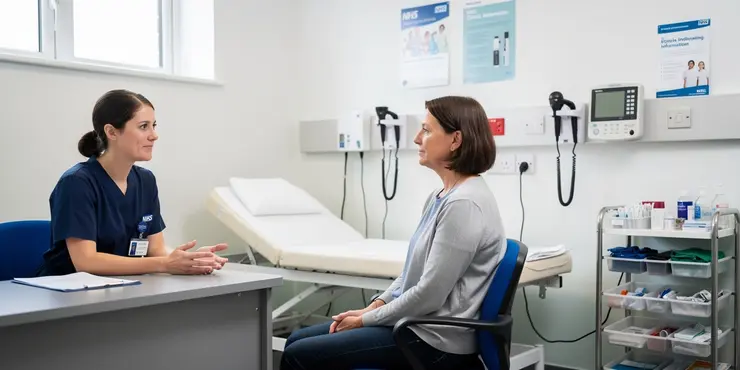
What is complex sleep apnea syndrome?
Relevance: 35%
-
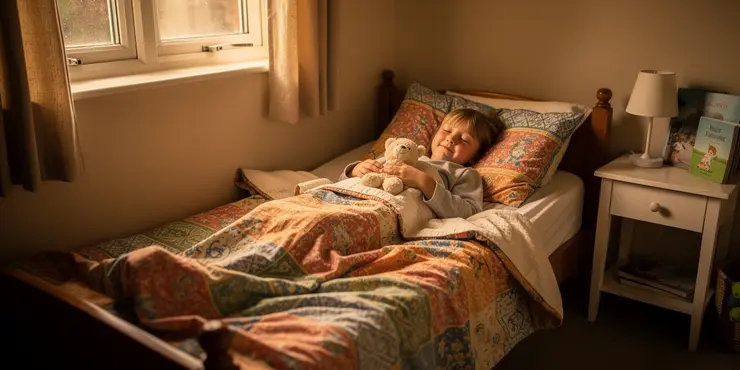
Can children have sleep apnea?
Relevance: 35%
-
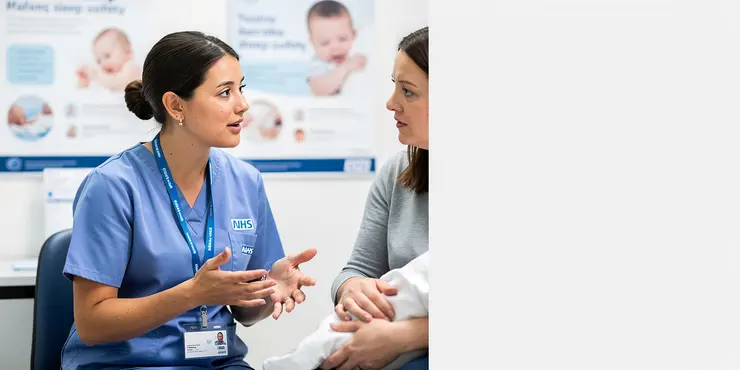
Is it okay to use a baby sleep positioner?
Relevance: 35%
-
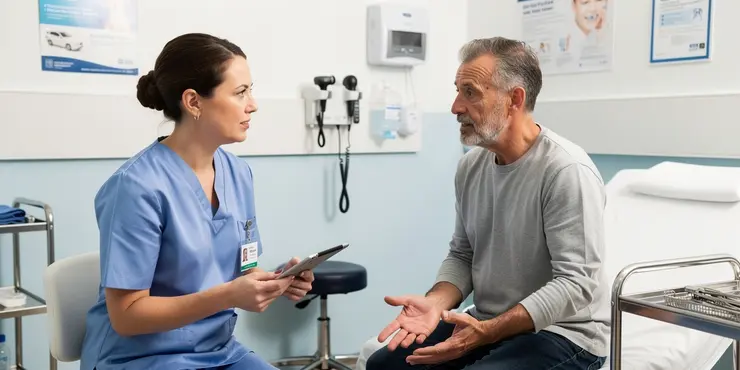
What are the main types of sleep apnea?
Relevance: 35%
-
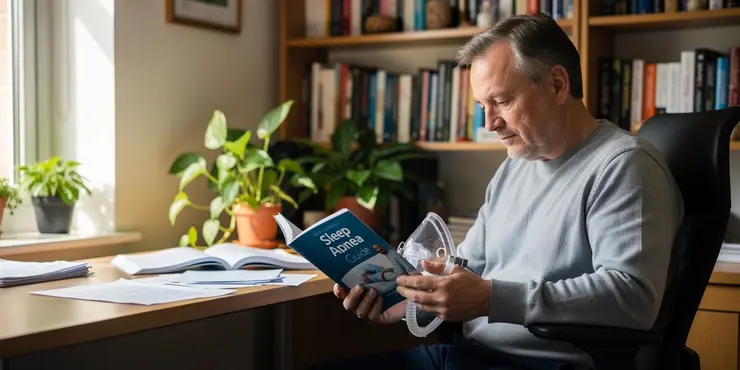
What is complex sleep apnea syndrome?
Relevance: 35%
-
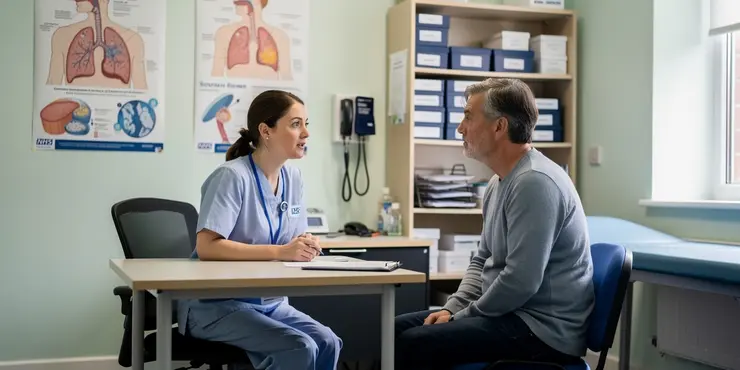
Is snoring always a sign of sleep apnea?
Relevance: 35%
-
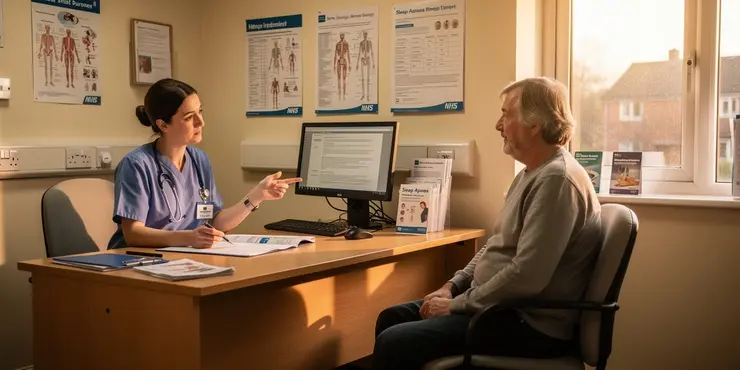
What treatments are available for sleep apnea?
Relevance: 35%
-
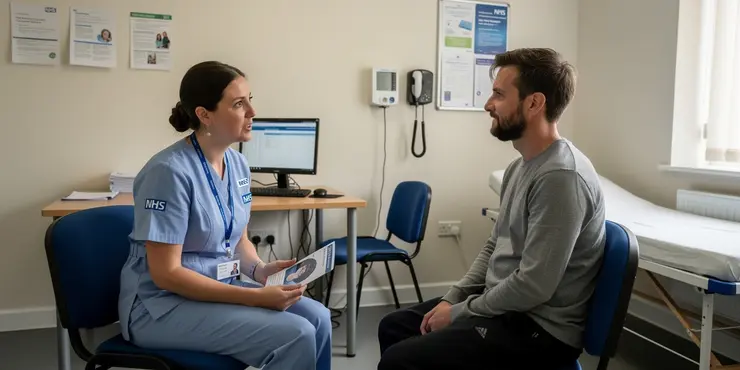
Is CPAP the only treatment for sleep apnea?
Relevance: 34%
-
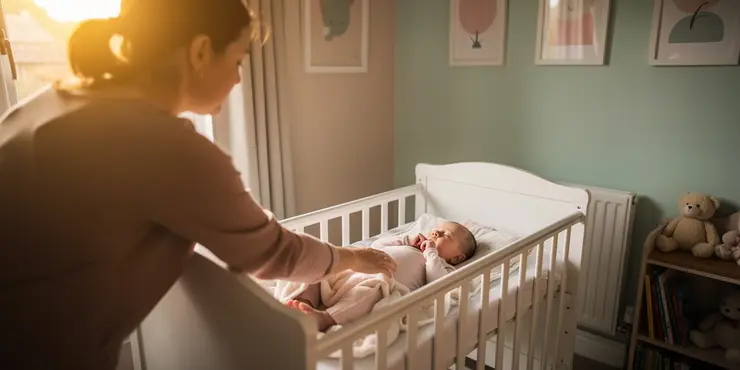
What is the safest sleep environment for an infant?
Relevance: 34%
Introduction
In the contemporary digital age, screen time has become an integral part of our daily lives, impacting everything from our work routines to leisure activities. With screens ever-present, concerns have raised about their potential effects on various aspects of health, particularly sleep. This article explores whether screen time affects both sleep onset and sleep maintenance, providing insights relevant to a UK audience.
Screen Time and Sleep Onset
Sleep onset refers to the period it takes for a person to transition from full wakefulness to sleep. Studies suggest that excessive screen time, especially before bedtime, can negatively affect sleep onset. The blue light emitted by screens of electronic devices like smartphones, tablets, and laptops is known to suppress melatonin production, a hormone that promotes sleep. Reduced melatonin levels can lead to difficulty in falling asleep promptly, prolonging the time it takes to achieve sleep onset.
In the UK, where digital device usage is prevalent, many individuals experience delays in sleep onset due to late-night screen exposure. By inhibiting the body's natural circadian rhythm, screen time can make it challenging to wind down before bed, contributing to an increase in cases of insomnia among both adults and children.
Screen Time and Sleep Maintenance
Sleep maintenance refers to the ability to remain asleep throughout the night. The relationship between screen time and sleep maintenance is also significant. Continuous engagement with screens can lead to over-stimulation of the brain, making it hard for some individuals to achieve a deep, uninterrupted sleep. This stimulation can result in frequent awakenings during the night and difficulties returning to sleep.
Moreover, screen-based activities that are engaging or stress-inducing can exacerbate issues with sleep maintenance. For instance, playing video games or engaging in intense online discussions can elevate stress and anxiety rates, contributing to sleep disturbances. In the UK, where many enjoy online gaming and social media interactions as common pastimes, these activities can inadvertently affect the quality and continuity of sleep.
Strategies for Better Sleep
To mitigate the negative effects of screen time on sleep, experts recommend several strategies. Limiting screen exposure at least one hour before bedtime can significantly help improve sleep onset and maintenance. Engaging in calming activities, such as reading a book or practising meditation, can also prepare the body for sleep more effectively. Additionally, using blue light filters on devices or wearing blue light-blocking glasses is another practical solution.
In conclusion, while screen time is a common aspect of modern life, it is crucial to manage its use to protect sleep health. By understanding and implementing strategies to reduce its impact, individuals in the UK can enhance their sleep quality, leading to better overall health and well-being.
Introduction
Today, we use screens a lot in our daily lives. We use them for work and for fun. But people are worried that too much screen time might be bad for our health, especially for our sleep. This article talks about how screen time might make it hard for people in the UK to fall asleep and stay asleep through the night.
Screen Time and Falling Asleep
Falling asleep is when you go from being awake to being asleep. Some studies say that using screens too much, especially before bed, can make it harder to fall asleep. Screens on phones, tablets, and computers give off a light called blue light. This blue light can stop your body from making a sleep chemical called melatonin. When melatonin levels are low, it can take longer to fall asleep.
In the UK, many people use their phones and tablets late at night. This can mess up their body's natural sleep rhythm, making it hard to relax and fall asleep. This problem is common among both adults and children and can lead to trouble sleeping, also known as insomnia.
Screen Time and Staying Asleep
Staying asleep means not waking up often during the night. Using screens too much can make your brain too active, which can make it hard to stay asleep. This can cause people to wake up during the night and find it hard to get back to sleep.
Doing exciting or stressful things on screens, like playing video games or having online arguments, can make it even harder to stay asleep. Many people in the UK enjoy these activities, but they can affect sleep quality. It's important to be careful about these activities before bed.
Strategies for Better Sleep
There are some things you can do to help with sleep if screen time is affecting it. Experts suggest turning off screens at least one hour before you go to bed. Doing calm activities, such as reading a book or meditating, can help your body get ready for sleep. Another idea is to use blue light filters on your devices or wear special glasses that block blue light.
In the end, even though we use screens a lot today, it is important to control how much we use them to keep our sleep healthy. By following these tips, people in the UK can improve their sleep quality and feel healthier overall.
Frequently Asked Questions
Does screen time affect sleep onset?
Yes, excessive screen time, especially before bed, can delay sleep onset by reducing the production of melatonin, the sleep hormone.
How does screen time impact sleep maintenance?
Screen time can disrupt sleep maintenance by causing more frequent wakings during the night due to overstimulation and interference with sleep cycles.
What is sleep onset?
Sleep onset is the transition period between wakefulness and sleep, when a person begins to fall asleep.
What is sleep maintenance?
Sleep maintenance refers to the ability to stay asleep throughout the night without frequent awakenings.
Why does blue light from screens affect sleep?
Blue light emitted by screens can suppress melatonin production, making it harder to fall asleep and stay asleep.
Can reducing screen time before bed improve sleep?
Yes, reducing screen time at least an hour before bed can improve both sleep onset and sleep quality.
How much screen time is recommended before bed?
It's recommended to limit screen time at least 1-2 hours before bedtime to ensure better sleep.
Do all screens affect sleep in the same way?
Any screen emitting blue light can affect sleep, but larger screens or those closer to the eyes may have a more significant impact.
Can using night mode on devices help with sleep?
Yes, night mode reduces blue light emissions and can help mitigate its effects on sleep, though it may not completely solve the problem.
Is reading on a tablet before bed harmful to sleep?
Yes, reading on a backlit tablet can affect sleep due to blue light exposure, unlike reading a physical book.
What role does melatonin play in sleep onset?
Melatonin is a hormone that regulates sleep-wake cycles, signaling the body that it's time to sleep.
How does screen time affect melatonin levels?
Exposure to screen light, especially blue light, can suppress melatonin production, leading to delayed sleep onset.
Can using screens in the morning affect sleep?
Morning screen use generally does not impact sleep as significantly as evening use, but overall screen habits can contribute to sleep issues.
Does screen time before bed affect children’s sleep more than adults?
Yes, children are more sensitive to blue light, and thus excessive screen time before bed can have a greater impact on their sleep onset and maintenance.
Are there other factors besides screen time that affect sleep onset?
Yes, factors such as stress, caffeine intake, and irregular sleep schedules can also affect sleep onset.
Can wearing blue light blocking glasses improve sleep?
Yes, blue light blocking glasses can help reduce the impact of screen light on sleep, especially if screen use before bed is unavoidable.
How can I improve sleep maintenance?
Maintaining a regular sleep schedule, creating a comfortable sleep environment, and reducing screen time before bed can improve sleep maintenance.
Does watching TV affect sleep onset?
Yes, watching TV before bed can affect sleep onset due to blue light and the stimulating content keeping the mind active.
Are there ways to reduce the impact of screens on sleep?
Setting screen limits, using night mode, and engaging in relaxation activities before bed can reduce screen impact on sleep.
How long before bed should I stop using screens?
It's best to stop using screens at least 1-2 hours before bedtime for better sleep onset and maintenance.
Does screen time affect how fast you fall asleep?
Do you use a phone, tablet, or computer before bed?
It might make it harder to fall asleep fast.
Try turning off screens 1 hour before bedtime.
Read a book or listen to calming music instead.
Yes, looking at screens too much, especially before bedtime, can make it harder to fall asleep. This is because it stops our brain from making enough of the sleep hormone called melatonin.
How does screen time affect sleep?
Looking at screens, like phones or tablets, before bed can make it hard to sleep well. The bright light from screens tells your brain to stay awake. This can make it take longer to fall asleep and stay asleep.
To help you sleep better, try:
- Turning off screens 1 hour before bed.
- Reading a book or listening to calm music instead.
- Using apps that make screen light softer and warmer at night.
Looking at screens before bed can make it hard to stay asleep. It can wake you up more at night because it makes your brain too active and gets in the way of natural sleep patterns.
What is Sleep Start?
Sleep start is when you first fall asleep. It's the moment you start to feel sleepy and end up in your dreams.
Here are some ways to help you fall asleep easily:
- Read a book before bed.
- Listen to calm music.
- Keep your room dark and quiet.
- Go to bed at the same time every night.
These tips can make going to sleep easier.
Sleep onset is when you start to fall asleep. It is the time between being awake and sleeping.
What does it mean to stay asleep?
Staying asleep means not waking up too often during the night. It helps you get good rest.
If you wake up a lot at night, try these tips:
- Relax before bed with a calm activity, like reading a nice book.
- Keep your room dark and quiet.
- Go to bed at the same time every night.
If you need help, ask a parent or teacher.
Sleep maintenance means staying asleep all night without waking up a lot.
Why does blue light from screens affect sleep?
Looking at screens can make it hard to sleep.
Screens, like phones and tablets, have blue light.
Blue light tricks your brain into thinking it is daytime.
This can stop you from feeling sleepy at night.
Try to stop using screens one hour before bed.
You can also use a blue light filter on your screen.
The blue light from screens can stop melatonin from working. Melatonin is a thing in your body that helps you sleep. If you look at screens a lot, it can make it hard to go to sleep and stay asleep.
Can using screens less before bed help you sleep better?
Yes, turning off screens like phones, tablets, and TVs at least one hour before bedtime can help you fall asleep faster and sleep better.
How long should you use screens before bed?
It's good to turn off screens like TVs, phones, and tablets at least 1 hour before you sleep. This helps you relax and sleep better.
You can try reading a book or listening to calm music instead.
It's a good idea to stop using screens at least 1 to 2 hours before going to bed to help you sleep better.
Do all screens change how we sleep in the same way?
Screens can make it hard to sleep. But not all screens are the same.
Some screens have blue light. Blue light can make us feel awake.
Try these tips to help with screens and sleep:
- Turn off screens one hour before bed.
- Use night mode on your devices.
- Wear glasses that block blue light.
Screens that shine blue light can make it hard to sleep. Big screens or screens close to your eyes can make it even harder.
Does using night mode on screens help you sleep better?
Many phones and tablets have a setting called night mode. Night mode makes the screen look warmer and less bright.
Using night mode before bed might help you sleep better. It is because bright light from screens can keep you awake.
You can try using night mode and see if it helps you. Also, try putting away screens 30 minutes before you sleep. This can also help you rest well.
Yes, night mode can help. It makes less blue light from screens. This can help you sleep better. But it might not fix the whole problem.
Is Using a Tablet Before Bedtime Bad for Sleep?
Using a tablet or screen before you sleep might make it hard to fall asleep.
The light from tablets can trick your brain into thinking it is still daytime.
Try these tips to help you sleep better:
- Stop using a tablet one hour before bedtime.
- Try reading a paper book instead.
- Ask someone to read a story to you.
- Listen to calming music or sounds.
- Use a warm night light in your room.
Yes, reading on a tablet with a bright screen can make it hard to sleep because of the blue light. But reading a real book doesn’t do this.
How does melatonin help us fall asleep?
Melatonin is a chemical in our body.
It helps us know when to sleep and when to wake up.
It tells our body it is time to sleep.
For help understanding, you can use pictures or listen to someone read it to you.
How does looking at screens affect sleep?
When we look at screens like phones, tablets, or TVs, it can make it hard to sleep. This is because screens give off a bright light.
This bright light can stop a special thing in our body called melatonin. Melatonin helps us feel sleepy.
To help with sleep, try not to use screens 1 hour before bedtime.
You can also use support tools like blue light filters to make screens softer on the eyes.
Looking at screens, like phones or tablets, can stop your body from making something called melatonin. This can make it hard for you to fall asleep quickly.
Does looking at screens in the morning change how we sleep?
Looking at screens, like phones or tablets, might change how well we sleep.
It is good to try and have less screen time in the morning.
Some helpful tools are:
- Blue light glasses to protect eyes
- Using apps that make screens less bright
Try to spend time outside. Sunlight can help us feel awake.
Using screens in the morning usually doesn't hurt sleep as much as using them at night. But, using screens a lot can still make it hard to sleep.
Does looking at screens before bed change how well kids sleep compared to grown-ups?
Yes, children are more sensitive to blue light. Spending too much time on screens before bed can make it harder for them to fall asleep and stay asleep.
Do things other than screen time make it hard to fall asleep?
Yes, things like stress, drinking caffeine, and not having a regular bedtime can make it hard to fall asleep.
Can blue light glasses help you sleep better?
Do you use a phone, tablet, or computer at night?
Blue light from screens can make it hard to sleep.
Blue light glasses can help block this light.
Wearing these glasses at night may help you sleep better.
Try using these glasses a few hours before bed.
Also, try turning off screens for some time before you sleep.
Blue light glasses can help you sleep better. They block the bright light from screens. This is good if you use screens before bedtime.
How can I sleep better through the night?
Going to bed at the same time every night helps you sleep well. Make sure your bed is comfy and cozy. Turn off screens, like tablets and phones, before you sleep. This can help you rest better.
Does Watching TV Make It Hard to Fall Asleep?
Watching TV before bed can make it hard to fall asleep. This is because the blue light from the TV and exciting shows keep your brain busy.
Can screens make it hard to sleep?
Yes, screens from phones, tablets, and TVs can make it hard to sleep.
How can I sleep better?
Here are some ideas:
- Turn off screens: Try to turn off screens at least 1 hour before bedtime.
- Use night mode: Some devices have a night mode that makes the light softer.
- Read a book: Instead of a screen, read a book before bed.
- Use blue light glasses: These can help block the light from screens.
- Relax: Try listening to calm music or deep breathing to help you relax.
Use screens less before bed, turn on night mode, and do calming things like reading or listening to music to sleep better.
When should I stop using screens before bed?
It is good to turn off screens 1 to 2 hours before bed. This helps you sleep better.
Useful Links
This website offers general information and is not a substitute for professional advice.
Always seek guidance from qualified professionals.
If you have any medical concerns or need urgent help, contact a healthcare professional or emergency services immediately.
Some of this content was generated with AI assistance. We’ve done our best to keep it accurate, helpful, and human-friendly.
- Ergsy carfully checks the information in the videos we provide here.
- Videos shown by Youtube after a video has completed, have NOT been reviewed by ERGSY.
- To view, click the arrow in centre of video.
- Most of the videos you find here will have subtitles and/or closed captions available.
- You may need to turn these on, and choose your preferred language.
- Go to the video you'd like to watch.
- If closed captions (CC) are available, settings will be visible on the bottom right of the video player.
- To turn on Captions, click settings .
- To turn off Captions, click settings again.
More Items From Ergsy search
-

Does screen time affect both sleep onset and sleep maintenance?
Relevance: 100%
-

Does screen time impact REM sleep?
Relevance: 61%
-

Study Shows Link Between Screen Time and Sleep Quality
Relevance: 59%
-

How does screen time affect sleep quality?
Relevance: 58%
-

Can reducing screen time improve sleep quality?
Relevance: 57%
-

What is the main finding of the study linking screen time to sleep quality?
Relevance: 57%
-

Is there a difference in screen time impact on sleep between weekdays and weekends?
Relevance: 57%
-

Are there any screen time guidelines recommended for improving sleep?
Relevance: 56%
-

What are some tips for reducing screen time to improve sleep?
Relevance: 55%
-

Are children more affected by screen time in relation to sleep than adults?
Relevance: 55%
-

What is the role of parental monitoring in children's screen time and sleep?
Relevance: 53%
-

What demographic showed the most significant change in sleep quality due to screen time?
Relevance: 53%
-

Is blue light from screens a factor in affecting sleep quality?
Relevance: 47%
-

What are some long-term effects of poor sleep quality linked to screen time?
Relevance: 41%
-

How does screen time before bed specifically affect adolescents?
Relevance: 40%
-

Is it safe to sleep after a concussion?
Relevance: 39%
-

The Importance of Sleep for All Ages
Relevance: 39%
-

What is sleep apnoea?
Relevance: 39%
-

What is sleep apnea?
Relevance: 39%
-

Can alcohol worsen sleep apnea?
Relevance: 38%
-

Top Tips to Help You Get a Good Nights Sleep
Relevance: 37%
-

How is sleep apnea diagnosed?
Relevance: 37%
-

Are baby sleep pillows safe?
Relevance: 37%
-

How common is sleep apnea?
Relevance: 37%
-

Why is sleep apnea dangerous?
Relevance: 36%
-

Can sleep apnea be cured?
Relevance: 36%
-

Do mitigation strategies like blue light glasses help improve sleep quality?
Relevance: 36%
-

Is it safe to sleep after a concussion?
Relevance: 36%
-

Are there any benefits to using baby sleep pillows?
Relevance: 36%
-

What are common symptoms of sleep apnea?
Relevance: 35%
-

What are risk factors for developing sleep apnea?
Relevance: 35%
-

What is complex sleep apnea syndrome?
Relevance: 35%
-

Can children have sleep apnea?
Relevance: 35%
-

Is it okay to use a baby sleep positioner?
Relevance: 35%
-

What are the main types of sleep apnea?
Relevance: 35%
-

What is complex sleep apnea syndrome?
Relevance: 35%
-

Is snoring always a sign of sleep apnea?
Relevance: 35%
-

What treatments are available for sleep apnea?
Relevance: 35%
-

Is CPAP the only treatment for sleep apnea?
Relevance: 34%
-

What is the safest sleep environment for an infant?
Relevance: 34%


